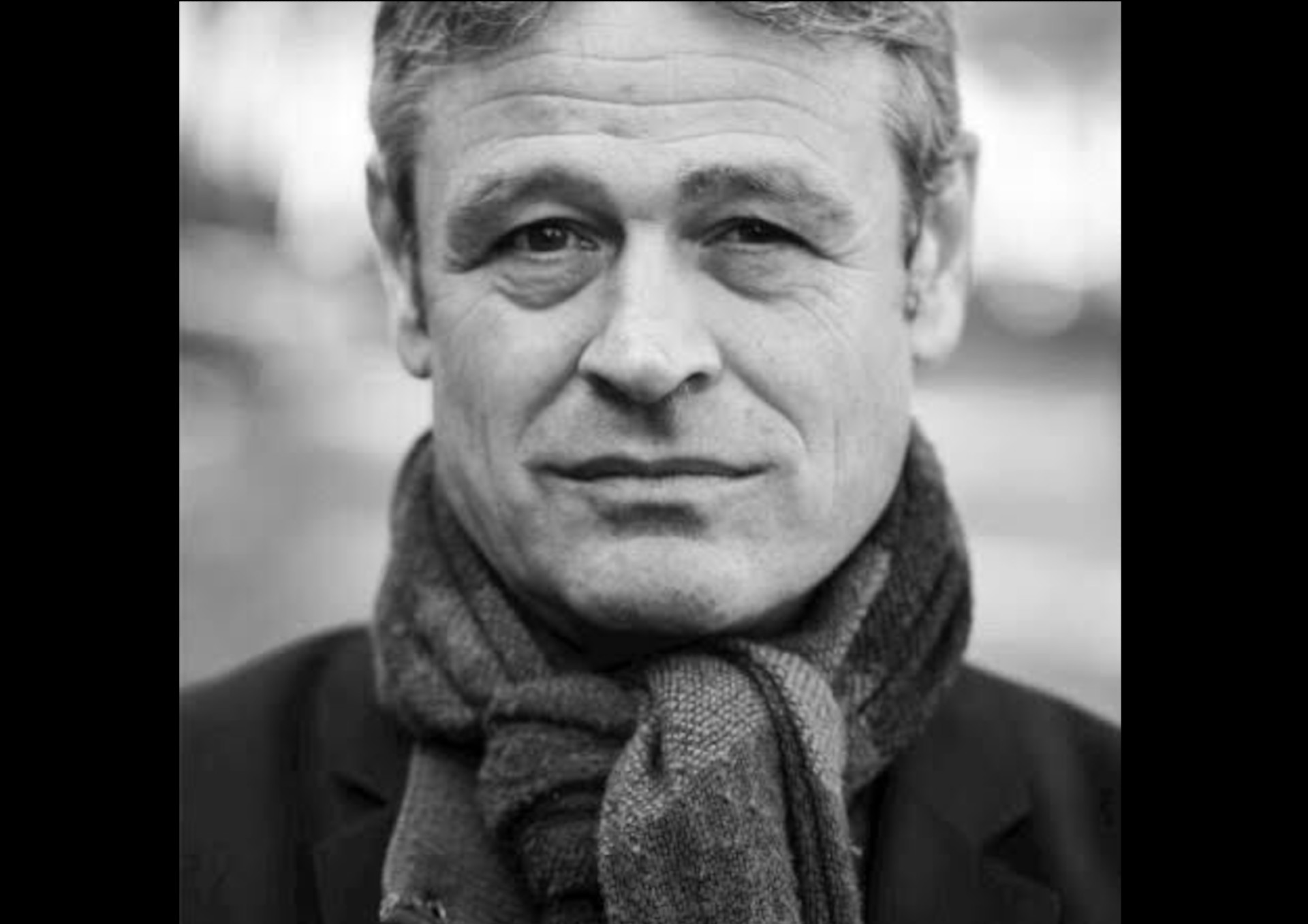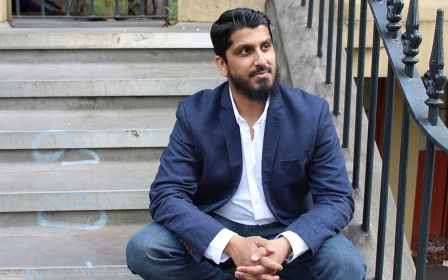How a Swiss diplomat lost his career to pro-Israeli smears about his private life

It was on 15 September when Viola Amherd, head of the Swiss Defence Department, introduced ambassador Jean-Daniel Ruch to the public as the incoming state secretary for security policy, a brand-new position created in the face of the Ukraine conflict.
Ruch, the envoy to Turkey at the time and a lover of poetry, quoted French poet Joachim du Bellay to express his feelings during a news conference in Bern:
"Happy, who made a nice trip like Odysseus [...] And came back, tested and full of wisdom, to live long for the rest only in the familiar circle."
The sentiment of Ruch’s quote was that, like Homer’s Odysseus, who famously fought at Troy for a decade and took another getting home, the ambassador had spent 30 years abroad serving his country. Now, at 60, he was returning to his roots as a top Swiss official.
A month later, not only was he unable to take up his new position, but his entire career as a diplomat and public servant was over.
Ruch is not speaking to the media about the events that brought an end to his career. He declined to comment to Middle East Eye.
But his friends and reports published by the Swiss media indicate he was a victim of a pro-Israeli campaign, which especially heated up following the 7 October Hamas-led attack on Israel.
The first shot fired in the public campaign against Ruch began with an opinion article in a prominent weekly magazine by Alfred Heer, an MP from the right-wing Swiss People’s Party, who called for his immediate resignation.
“Jean-Daniel Ruch was particularly noticed by the fact that he met Hamas chief Khaled Meshaal in Cairo in 2012,” Heer wrote.
“He has significantly supported the doctrine that one must negotiate with Hamas, as it is part of a peace solution with Israel. Ruch was nothing more than a useful idiot for Hamas.”
Heer is known for his ties to pro-Israel groups. He is the head of the Audiatur Foundation, which is widely seen as pro-Israel and describes itself as standing “for an open commitment to the State of Israel and for a differentiated approach to the Middle East conflict”.
Heer’s criticism drew some attention when it was published on 11 October, yet carried more weight later that month as his party performed strongly in the federal elections, increasing its number of seats in parliament by nine.
Rise and fall
Ruch’s CV reads impeccably. He has worked at the Organisation for Security and Cooperation in Europe (OSCE) and was involved in allowing Russia into the European security structure in the 1990s.
He worked in the Balkans for many years and was a political advisor to Carla Del Ponte, chief prosecutor of the International Criminal Tribunal for the former Yugoslavia in The Hague.
In 2006, he became Switzerland’s special envoy for the Middle East under then-foreign minister Micheline Calmy-Rey, a member of the Social Democratic Party. Calmy-Rey thought at the time that contact had to be maintained with Hamas, following its victory in the 2006 Palestinian legislative elections, and mandated Rush to do so.
Ruch later served as ambassador to Israel between 2016 to 2021.
“Ruch's services were apparently appreciated, also by the Israelis,” wrote Die Weltwoche, a Swiss weekly newspaper.
“As an ambassador, he tried in consultation with the government of Benjamin Netanyahu for the release of Hamas hostages and the handover of corpses.”
'I could not have done a lot in my career if Switzerland had not been neutral'
- Jean-Daniel Ruch
Ruch is a true believer of Swiss neutrality. "I could not have done a lot in my career if Switzerland had not been neutral," he told his unveiling news conference on 15 September.
In his eyes, neutrality is central to Switzerland's ability to play a credible intermediary role on the world stage.
Despite all this, people wanted Ruch out. He was suddenly declared a security risk.
Blick, a right-wing newspaper, reported on 25 October that Ruch was “blackmailable”, citing private details of his sex life.
Sources close to Ruch say photos and other material that reveal intimate details of his life were leaked to Blick editors.
“Everything points towards surveillance occurring while Ruch worked in Israel as an ambassador,” one source close to him told MEE, speaking on condition of anonymity.
Unnamed Swiss diplomats told Die Weltwoche they were convinced that the material came from Israeli secret services.
“This is obvious because, according to insiders, ambassadors in Israel are routinely intercepted and shadowed, especially if they maintain contacts with Hamas, as Ruch did on behalf of former Swiss Foreign Minister Micheline Calmy-Rey,” the report said.
Under pressure, Ruch decided not to take up his new position and leave his post in Ankara by the new year. Yet Blick continued to publish critical pieces about him, labelling him a sex addict.
In October, Blick and Tages-Anzeiger, another Swiss paper, reported that there was talk of sex workers visiting the ambassador’s residence in Tel Aviv.
Ruch denies the allegations, people close to him told MEE.
“He can’t be blackmailed, and he also had no sex with spies, only an affair with a Swiss woman, which Ruch’s wife also knew,” a source close to Ruch told MEE.
“Thus, he had no blackmail to fear. He simply had no interest in his private life being spread out in public.”
The Swiss government brought no charges against him, but there was also no investigation conducted to reveal how a newspaper obtained intimate images of a top official while serving in Israel.
Ruch’s entourage believes the reporting on his character was political, rather than journalistic.
He will now depart from the Swiss diplomatic service in June, without any severance pay.
Middle East Eye propose une couverture et une analyse indépendantes et incomparables du Moyen-Orient, de l’Afrique du Nord et d’autres régions du monde. Pour en savoir plus sur la reprise de ce contenu et les frais qui s’appliquent, veuillez remplir ce formulaire [en anglais]. Pour en savoir plus sur MEE, cliquez ici [en anglais].






